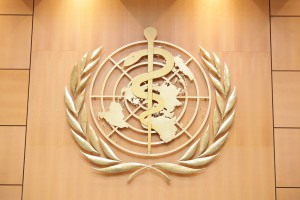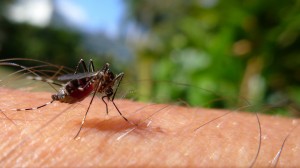
World Health Day occurs annually on the 7th April to mark the founding of the World Health Organisation (WHO) in 1948. The WHO aims to utilise World Health Day to draw attention to a specific subject related to global human health. Previous years have focussed on a diverse range of topics of global health concern such as, mental health, antimicrobial resistance and climate change, however, this year the focus will be on vector-borne diseases.
To give some idea of the scope of the problem surrounding vector-borne diseases, there were approximately 207 million cases of malaria and 627,00 deaths from the disease in 2012 despite considerable advances in the control of the disease in the last decade. Dengue, considered the fastest growing vector-borne disease, caused by viruses also transmitted by mosquitoes, is increasing dramatically in both incidence and geographic area with an estimated 500,000 people hospitalised annually. Numerous other insects, acari and snails transmit a wide variety of bacteria, viruses, protozoa and helminths that infect large numbers of people globally causing mortality and debilitation.
The WHO through the World Health Day aims to draw attention to these vectors and pathogens and to encourage communities at risk to act to protect themselves. Ministries of health are also encouraged to take action to protect communities vulnerable to vector-borne disease and to put in place integrated surveillance strategies for vectors. They also wish to educate travellers about how to protect themselves against vector-borne diseases when entering countries where they will be at risk of infection.
In addition to the activities conducted by the WHO, people are also encouraged to mark the day by organising their own activities including conferences and workshops, giving press releases and presentations and initiating classroom discussions or conducting diagnostic screenings.
Check the website for more information about World Health Day and vector-borne diseases in general and keep an eye out for events that might be happening near you.
Other dates for the diary in 2014:

Rare Disease Day will take place on the 28th of February. This year the event will focus on raising public awareness about rare diseases in general and on encouraging the 60 million people affected by over 6000 rare diseases, who might otherwise feel isolated, to join together for better care.
World Malaria Day occurs annually on the 25th April and aims to provide education and understanding about malaria with events and activities planned globally.
World Mosquito Day happens annually on the 20th August to commemorate the discovery by Sir Ronald Ross in 1897 that female mosquitos transmit malaria.

One Comment